

This is VIDEOBALL. By the year 2040, all other forms of sporting entertainment will have been outlawed. By the year 2045, all human mating rituals will have been replaced by VIDEOBALL. By the year 2050, all high school history textbooks will simply read the word VIDEOBALL a thousand times on every page. By the year 2055, we don’t call it VIDEOBALL anymore, because there will be no more language...there will only be VIDEOBALL.
This is the promise Midnight City hype man Vito Gesualdi gives to the crowd huddled around Videoball’s booth on the PAX show floor, and it’s hard not to believe him. Everyone in attendance seems convinced, as not even the flashiest of triple-A spectacles can pry their eyes away from the sights and sounds of the Videoball screen. Occasionally, a close match or big play will cause a roar from the spectators that can be heard from every corner of the packed convention hall.
Tim Rogers, the creator of Videoball, is also hovering around the booth, sporting a silk Notre Dame letterman jacket and a pair of bright green patterned shorts. He’d be hard to miss even if he wasn’t challenging all comers to $100 Videoball money matches, which, of course, he is. By the end of the weekend, he hasn’t lost a match, and an impressive pile of bills has amassed next to the console running his latest creation.
In between bouts of crushing overeager opponents, Tim agrees to explain how this deceptively simple-looking sports game came to be.
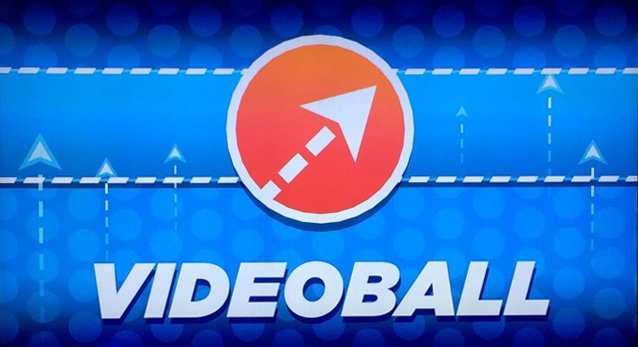
The initial prototype for Videoball has existed for over two years now, but it’s only in the last few months that Tim and his studio-mates at Action Button Entertainment have decided to turn it into a real game that they’ll release to the public. Tim is a rabid prototyper, and most of his projects never see the light of day.
“I’ve got like 70 prototypes on my iPhone right now,” he confesses.
There were a few things that led to Videoball becoming more just than another lost prototype. For one, Tim seems unable to get people to stop playing it. “It’s the one game people have always come over to my house and been like ‘Hey, we should play Videoball!’ for those two years while we’ve been working on other stuff,” he says. “So it [seemed] like maybe we should just make Videoball and finish it.”
With the game’s development now underway in earnest, it has remained a popular attraction among Tim’s friends. “We play the game in my house in Oakland every Sunday. People just come over, I get like 20 people in my house,” Tim explains.
On top of that initial popularity, Tim also mentions that he’s been inspired by the recent resurgence of local multiplayer games. Releases like Towerfall, the Sportfriends games, and other simple, same-screen multiplayer games have become hugely popular in a very short amount of time, and while Videoball has existed since before most of those games came out, they’ve been instrumental in motivating Action Button to finish and release Videoball.
“I think it was probably Towerfall that made me decide,” Tim says, “because that was like … whenever i go to a game convention, they’ve got Divekick and Towerfall set up somewhere, and both of those games are out, both of them out on multiple platforms, but there’s always a line of like a hundred people just waiting to play.
“That’s interesting to me, because they can play [Divekick and Towerfall] with their real friends, and they’re easy games to get someone to play, even if they’ve never played it … But they still, when they get on an airplane and go to PAX, where there’s new games that they could play for the first time, they’re still waiting in line for a half an hour and standing around watching people play those games. Some of those games are just that quality.”
In many ways, these games seem perfectly suited to the convention circuit. Simple controls and mechanics make it easy for anyone to wander by and play a match, while strategic depth makes for fierce competition between those who have had the chance to practice a few times. Whether Videoball can convert that show floor attractiveness into something people will buy and play at home remains to be seen, but Tim has some plans to help that happen.
“I realized that we probably need a singleplayer mode and we probably need an online mode, so we’re doing singleplayer and we’re doing online,” he says. “We’ve got 1-on-1, 2-on-2, and 3-on-3, and a lot of work went into balancing the game so it’s still really good when it’s just 1-on-1.
“Then we have all the different arenas which are very thoughtfully set up so that each arena’s like a different game. That was a thing I was serious about, was having it be flexible enough to be different enough every time you play … there’s like 35 different arenas, and then there’s a number different ball settings. [You can also change] how many goals you want to play to - you can play to 100 with one ball. There’s an achievement that you unlock if you play a multiplayer game that’s to 100 points with one ball. It takes over an hour, but man, we’ve had people sit there and scream the whole way through a 100 point one ball match.”
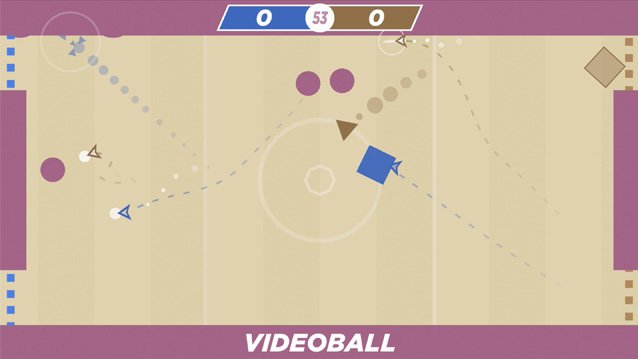
Videoball is nearing completion now, and while it doesn’t yet have an official release date, Tim expects to have it out before the end of the year. It will join the growing list of competitive local multiplayer games to come out in 2014 - a list already well-populated with the likes of Nidhogg, Sportsfriends, and the PC/PS4 version of Towerfall.
This cadre of games raises the question: why now? After years of watching split-screen and local multiplayer features be stripped out of triple-A titles in favour of online modes, why is local multiplayer coming back in such an abrupt way?
“Everybody’s getting into technology now, everybody’s got a smartphone,” Tim offers as a possible explanation. “If you would have told me about smartphones when i was like 14, and actively hiding the fact that I played video games because i didn’t want more people to beat me up in school, I would’ve been like ‘No way, that’s insane, that’s like some William Gibson’s Neuromancer stuff.’”
Could this mainstream embracing of games and technology make people more inclined to start playing games with their real-world friends again? Has the diminishing stigma surrounding video games made people more open to the idea of games as a social activity?
If so, then the rest of the equation is pretty straightforward. With the social stigma gone, what remains is an activity that’s just plain fun. Tim compares the experience to his college LAN parties in the ‘90s, saying, “These games are undeniably fun because Doom 2 LAN parties were undeniably fun, it’s just easier to set it up now.”
Whatever the reason for the revival of local multiplayer, Videoball is set to be another top-tier entry into this emerging genre of hyper-accessible same-screen action games. With only a quarter century remaining until all other sports are outlawed, it would be wise to start practicing as soon as possible.


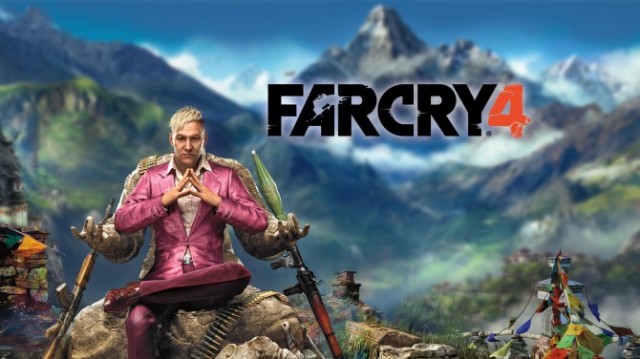

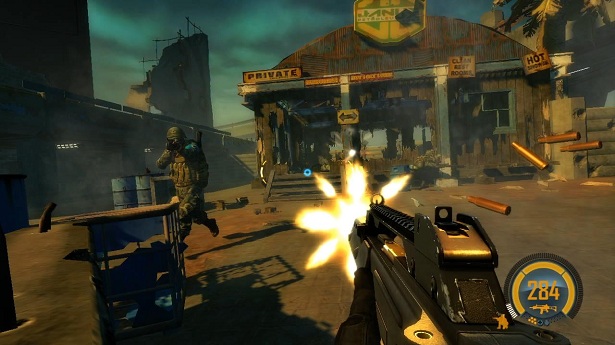 Bodycount Walkthrough
Bodycount Walkthrough March of the Eagles Review: War, War and More War
March of the Eagles Review: War, War and More War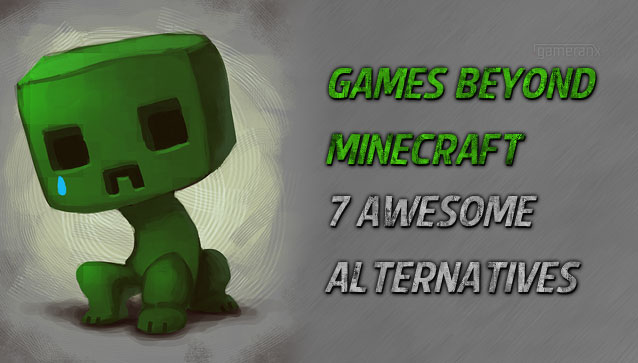 7 Games Like Minecraft - Like Minecraft, Only Different
7 Games Like Minecraft - Like Minecraft, Only Different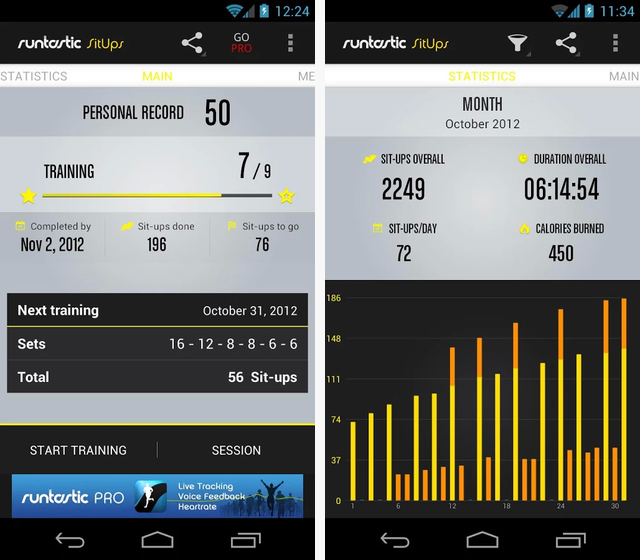 Android Apps on Sale for 19 December 2013: SwiftKey, Worms 2, Great Little War Game
Android Apps on Sale for 19 December 2013: SwiftKey, Worms 2, Great Little War Game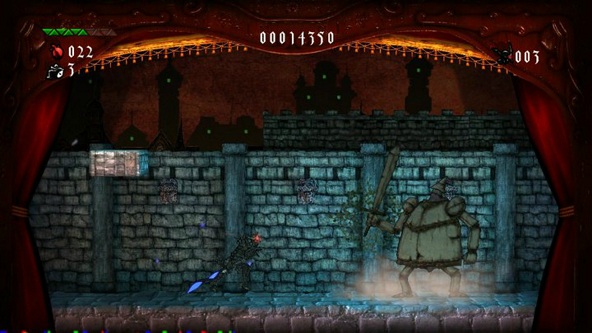 Black Knight Sword Walkthrough
Black Knight Sword Walkthrough